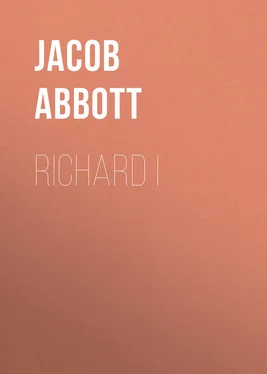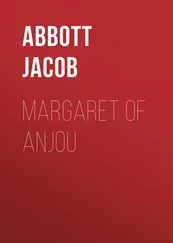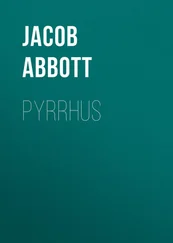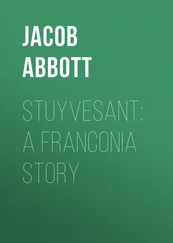Jacob Abbott - Richard I
Здесь есть возможность читать онлайн «Jacob Abbott - Richard I» — ознакомительный отрывок электронной книги совершенно бесплатно, а после прочтения отрывка купить полную версию. В некоторых случаях можно слушать аудио, скачать через торрент в формате fb2 и присутствует краткое содержание. Жанр: foreign_antique, foreign_prose, Историческая проза, на английском языке. Описание произведения, (предисловие) а так же отзывы посетителей доступны на портале библиотеки ЛибКат.
- Название:Richard I
- Автор:
- Жанр:
- Год:неизвестен
- ISBN:нет данных
- Рейтинг книги:3 / 5. Голосов: 1
-
Избранное:Добавить в избранное
- Отзывы:
-
Ваша оценка:
- 60
- 1
- 2
- 3
- 4
- 5
Richard I: краткое содержание, описание и аннотация
Предлагаем к чтению аннотацию, описание, краткое содержание или предисловие (зависит от того, что написал сам автор книги «Richard I»). Если вы не нашли необходимую информацию о книге — напишите в комментариях, мы постараемся отыскать её.
Richard I — читать онлайн ознакомительный отрывок
Ниже представлен текст книги, разбитый по страницам. Система сохранения места последней прочитанной страницы, позволяет с удобством читать онлайн бесплатно книгу «Richard I», без необходимости каждый раз заново искать на чём Вы остановились. Поставьте закладку, и сможете в любой момент перейти на страницу, на которой закончили чтение.
Интервал:
Закладка:
It is remarkable how great an effect a death in a family produces in reconciling those who before had been at enmity with each other. There are many husbands and wives who greatly disagree with each other in times of health and prosperity, but who are reconciled and made to love each other by adversity and sorrow. Such was the effect produced upon the minds of Henry and Eleanora by the death of their son and heir. They were both overwhelmed with grief, for the affection which a parent bears to a child is never wholly extinguished, however undutiful and rebellious a child may be; and the grief which the two parents now felt in common brought them to a reconciliation. The king seemed disposed to forgive the queen for the offenses, whether real or imaginary, which she had committed against him. "Now that our dear son is dead and gone," said he, "let us no longer quarrel with each other." So he liberated the queen from the restraint which he had imposed upon her, and restored her once more to her rank as an English queen.
This state of things continued for about a year, and then the old spirit of animosity and contention burned up once more as fiercely as ever. The king shut up Eleanora again, and a violent quarrel broke out between the king and his son Richard.
The cause of this quarrel was connected with the Princess Alice, to whom it will be recollected Richard had been betrothed in his infancy. Richard claimed that now, since he was of age, his wife ought to be given to him, but his father kept her away, and would not allow the marriage to be consummated. The king made various excuses and pretexts for the delay. Some thought that the real reason was that he wished to continue his guardianship and his possession of the dower as long as possible, but Richard thought that his father was in love with Alice himself, and that he did not intend that he, Richard, should have her at all. This difficulty led to new quarrels, in which the king and Richard became more exasperated with each other than ever. This state of things continued until Richard was thirty-four years old and his bride was thirty. Richard was so far bound to her that he could not marry any other lady, and his father obstinately persisted in preventing his completing the marriage with her.
In the mean time Prince Geoffrey, another of the king's sons, came to a miserable end. He was killed in a tournament. He was riding furiously in the tournament in the midst of a great number of other horsemen, when he was unfortunately thrown from his steed, and trodden to death on the ground by the hoofs of the other horses that galloped over him. The only two sons that were now left were Richard and John. Of these, Richard was now the oldest, and he was, of course, his father's heir. King Henry, however, formed a plan for dividing his dominions between his two sons, instead of allowing Richard to inherit the whole. John was his youngest son, and, as such, the king loved him tenderly. So he conceived the idea of leaving to Richard all his possessions in France, which constituted the most important part of his dominions, and of bestowing the kingdom of England upon John; and, in order to make sure of the carrying of this arrangement into effect, he proposed crowning John king of England forthwith.
Richard, however, determined to resist this plan. The former king of France, Louis the Seventh, was now dead, and his son, Philip the Second, the brother of Alice, reigned in his stead. Richard immediately set off for Paris, and laid his case before the young French king. "I am engaged," said he, "to your sister Alice, and my father will not give her to me. Help me to maintain my rights and hers."
Philip, like his father, was always ready to do any thing in his power to foment dissensions in the family of Henry. So he readily took Richard's part in this new quarrel, and he, somehow or other, contrived means to induce John to come and join in the rebellion. King Henry was overwhelmed with grief when he learned that John, his youngest, and now his dearest child, and the last that remained, had abandoned him. His grief was mingled with resentment and rage. He invoked the bitterest curses on his children's heads, and he caused a device to be painted for John and sent to him, representing a young eaglet picking out the parent eagle's eyes. This was to typify to him his own undutiful and unnatural behavior.
Thus the domestic life which Richard led while he was a young man was imbittered by the continual quarrels between the father, the mother, and the children. The greatest source of sorrow to his mother, however, was the connection which subsisted between the king and the Lady Rosamond. The nature and the results of this connection will be explained in the next chapter.
Chapter III.
Fair Rosamond
During his lifetime King Henry did every thing in his power, of course, to keep the circumstances of his connection with Rosamond a profound secret, and to mislead people as much as possible in regard to her. After his death, too, it was for the interest of his family that as little as possible should be known respecting her. Thus it happened that, in the absence of all authentic information, a great many strange rumors and legends were put in circulation, and at length, when the history of those times came to be written, it was impossible to separate the false from the true.
The truth, however, so far as it can now be ascertained, seems to be something like this: Rosamond was the daughter of an English nobleman named Clifford. Lord Clifford lived in a fine old castle situated in the valley of the Wye, in a most romantic and beautiful situation. The River Wye is in the western part of England. It flows out from among the mountains of Wales through a wild and romantic gorge, which, after passing the English frontier, expands into a broad, and fertile, and most beautiful valley. The castle of Lord Clifford was built at the opening of the gorge, and it commanded an enchanting view of the valley below.
It was here that Rosamond spent her childhood, and here probably that Henry first met her while he was yet a young man. She was extremely beautiful, and Henry fell very deeply in love with her. This was while they were both very young, and some time before Henry thought of Eleanora for his wife. There is some reason to believe that Henry was really married to Rosamond, though, if so, the marriage was a private one, and the existence of it was kept a profound secret from all the world. The real and public marriages of kings and princes are almost always determined by reasons of state; and when Henry at last went to Paris, and saw Eleanora there, and found, moreover, that she was willing to marry him, and to bring him as her dowry all her possessions in France, which would so greatly extend his dominions, he determined to accede to her desires, and to keep his connection with Rosamond, whatever the nature of it might have been, a profound secret forever.
So he married Eleanora and brought her to England, and lived with her, as has already been described, in the various palaces which belonged to him, sometimes in one and sometimes in another.
Among these palaces, one of the most beautiful was that of Woodstock. The engraving on the opposite page represents the buildings of the palace as they appeared some hundreds of years later than the time when Rosamond lived.
Читать дальшеИнтервал:
Закладка:
Похожие книги на «Richard I»
Представляем Вашему вниманию похожие книги на «Richard I» списком для выбора. Мы отобрали схожую по названию и смыслу литературу в надежде предоставить читателям больше вариантов отыскать новые, интересные, ещё непрочитанные произведения.
Обсуждение, отзывы о книге «Richard I» и просто собственные мнения читателей. Оставьте ваши комментарии, напишите, что Вы думаете о произведении, его смысле или главных героях. Укажите что конкретно понравилось, а что нет, и почему Вы так считаете.












